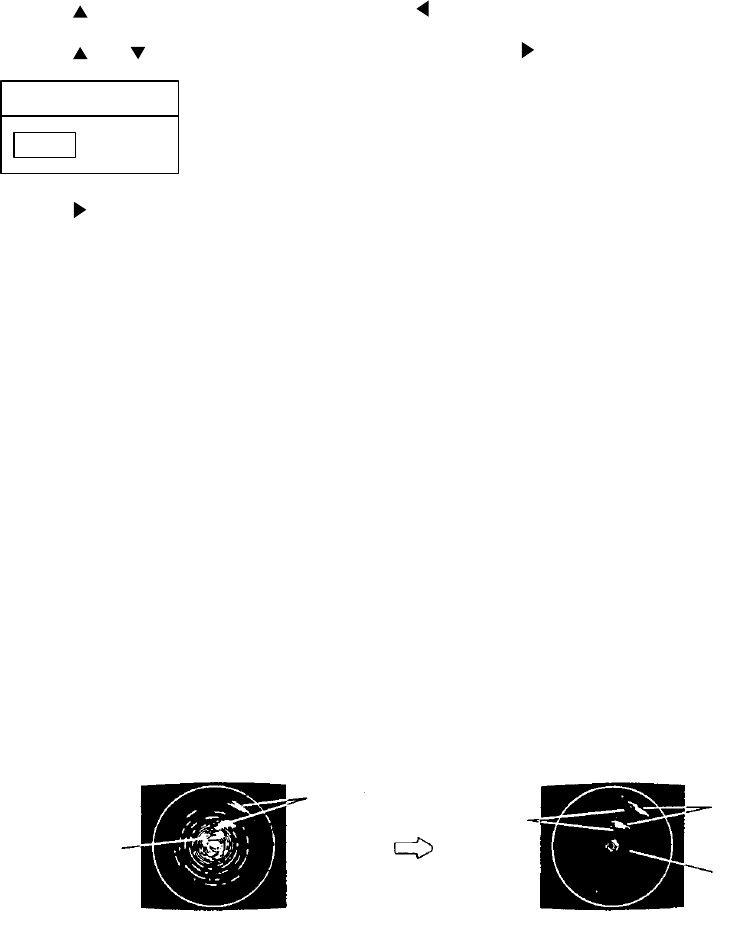
2-13
2.11.2 Suppressing bottom tail
As described earlier, fish schools near the bottom are sometimes difficult to detect because you
have to discriminate fish echoes from the bottom reflections. To discriminate fish echoes near
the bottom, select the short Tx pulselength on the COM1 menu to decrease the tail of bottom
reflections.
1. Press the [MENU] key to open the menu.
2. Press
to select MENU and then press to select the COM1 menu.
3. Press
or to select PULSELENGTH and press . The following dialog box appears.
PULSELENGTH
LONG SHORT
4. Press
to select SHORT.
5. Press the [MENU] key to register your selection and close the menu.
2.11.3 Displaying weak echoes clearly
Echoes from targets (such as the bottom or a fish) return to the transducer in order of the
distance to them, and when their intensities are compared at the transducer face, those from
nearer targets are generally stronger when their reflecting properties are nearly equal. The
sonar operator will be quite inconvenienced if these echoes are directly displayed on the screen,
since he won’t be able to judge the actual size of the target from the size of echoes displayed on
the screen. To overcome this inconvenience, use the TVG function. It compensates for
propagation loss of sound in water: amplification of echoes on short range is suppressed and
gradually increased as range increases, so that similar targets are displayed in similar
intensities irrespective of the ranges to them.
The TVG also functions to suppress unwanted echoes and noise which appears in a certain
range area on the screen.
Without TVG
Proper TVG setting
Noise caused by
strong reflection
of surface
turbulence.
Nearer target
echoes appear
in larger size.
Reduce
gain for
nearby
areas,
using
TVG.
Echoes of equal
size targets are
presented in the
same color and size.
Noise is rejected.
Figure 2-14 How TVG works
Note: Excessive TVG may eliminate short-range echoes.


















